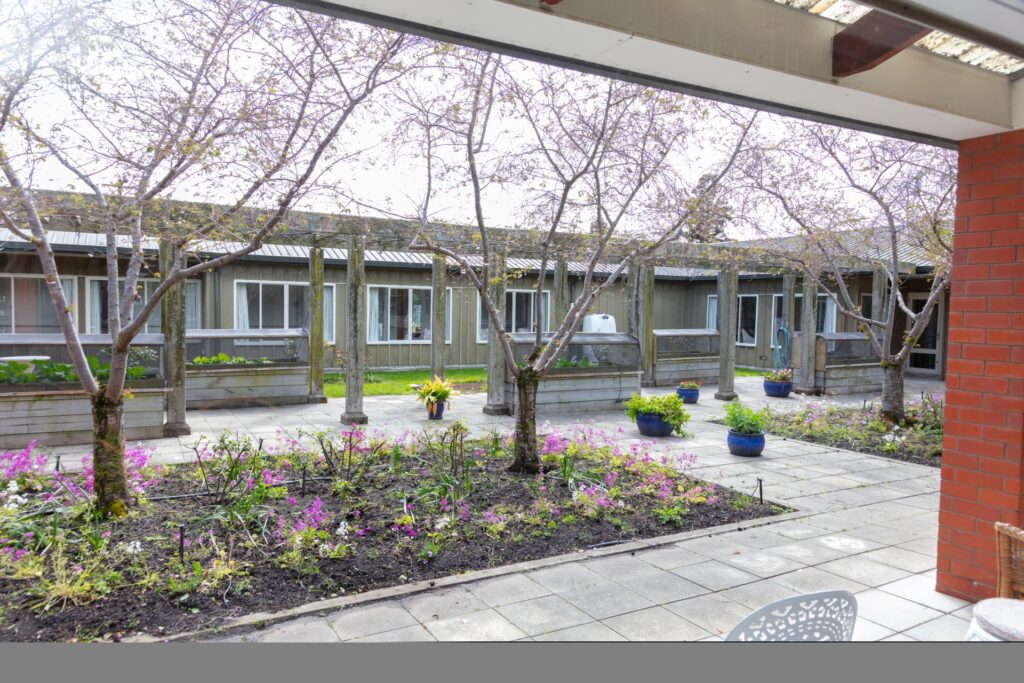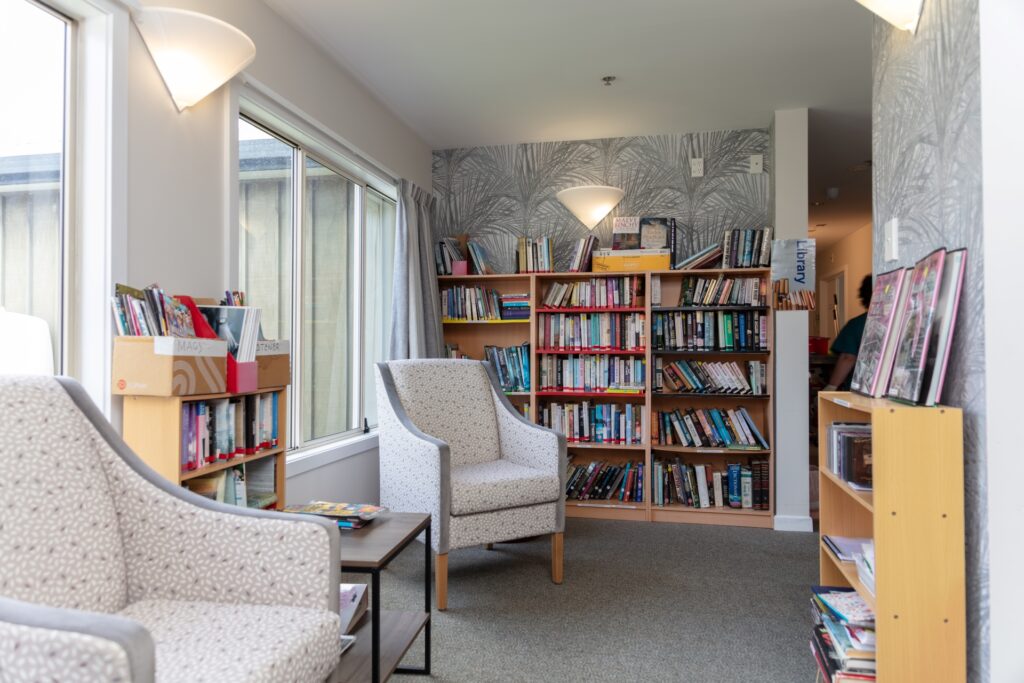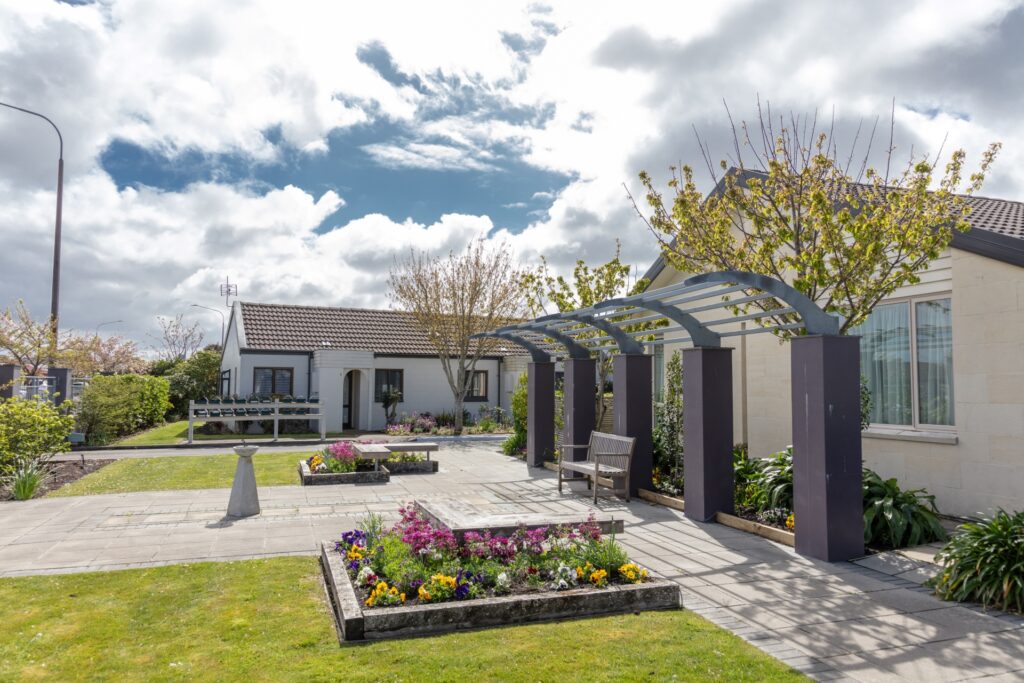Dementia Care
In Christchurch
Our Approach
Our approach with loved ones with dementia is to support their memory, with an holistic approach to care and well-being.
This is our focus in the Thorrington Home Memory Support Neighbourhood.
“People with dementia often live in a parallel universe, existing in the same time and space as ours, but with different rules and values.
We must strive to acknowledge and understand these universes and find a common ground for care.”– ‘Dementia Beyond Drugs’ by G. Allen Power, an Eden Alternative GP specialising in changing our culture of care for those living with dementia.
Memory Support at the Memory Care Centre
About Dementia
One of the most common misconceptions about dementia is that it’s a normal part of getting older. While about 25% of people over the age of 80 will get dementia, it’s important to remember that 75% of all the people will not. Dementia is not a normal part of ageing.
Dementia is a loss of thinking or cognitive abilities such as short-term memory, word finding, understanding concepts, following the plot of a story, or getting lost in familiar circumstances. These are accompanied by functional losses – initially more complicated abilities – such as managing finances or driving. But as the dementia progresses more basic activities of daily living, such as getting dressed or washing, get lost as well.
Behavioural symptoms occur as the dementia progresses, for example, in agitation or aggression or wandering. In the final stages of dementia a person becomes totally dependent for care. One of the most common questions people ask is ‘what’s the difference between dementia and Alzheimer’s disease?’
Alzheimer’s is a type of dementia of which there are over 100 types. It’s caused by a degeneration of nerve cells which gradually wither and die in the brain. Looking through a microscope would show a buildup of an abnormal protein which gets deposited as amyloid plaques, and there is twisting of the inside of the nerve cells, forming neurofibrillary tangles.
Other common forms of dementia are vascular dementia caused by small strokes or problems with circulation, Lewy body dementia, frontotemporal dementia, alcoholic dementia and dementia following traumas such as head injury.
How to tell the difference between normal ageing and early dementia
- If the memory loss is getting progressively worse
- If other people are noticing
- If it’s not just memory but other cognitive abilities which are also being affected such as losing words, being unable to follow the plot of a story, or being unable to grasp concepts
- Getting lost in familiar places




